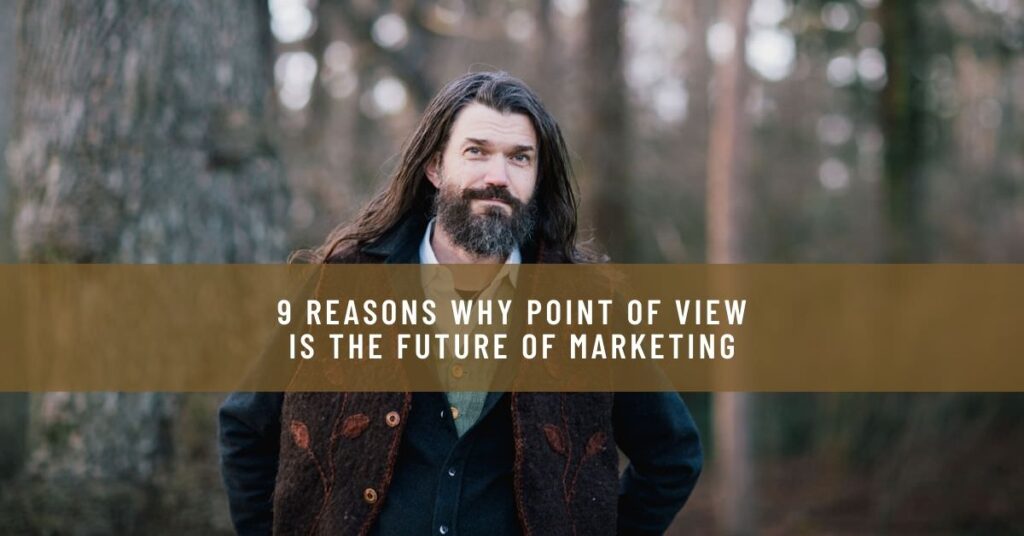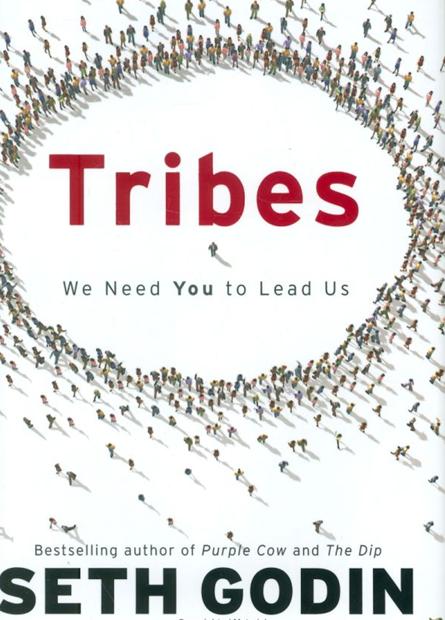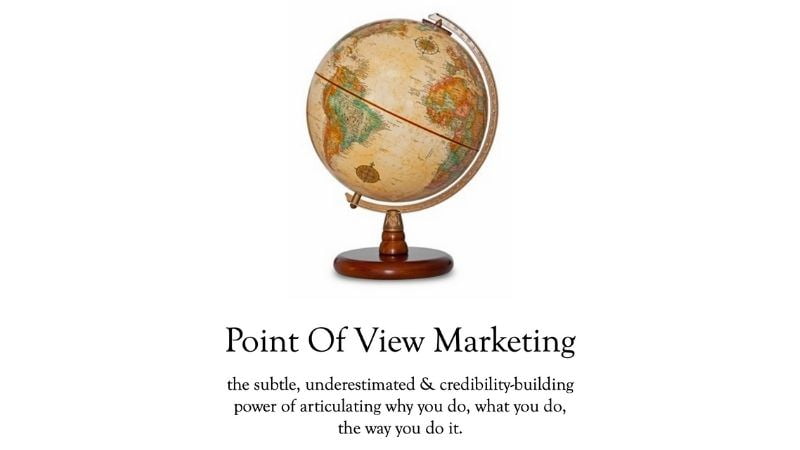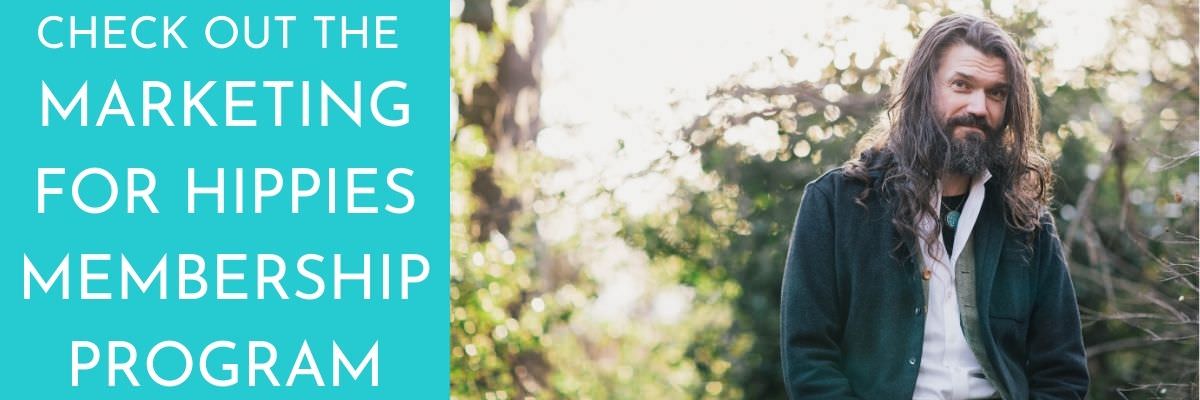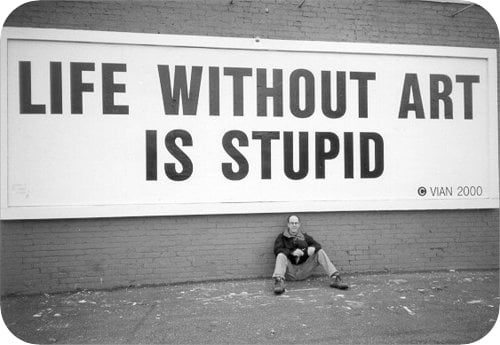
The photos to the right illustrate very clear and amusing points of view.
But what does having a clear perspective have to do with marketing?
I think it’s future of marketing not because I think it’s the most important but I think it’s one of the least understood and least explored facet of marketing today.
The marketing world has been talking about features, benefits, speaking to the problem or evening promising a clear result for years. Those are all vital, but I think that point of view is often an overlooked piece. Yes, having a target market matters but it’s not a new idea – and what does it matter if you aren’t bringing those people a refreshing perspective?
I think that having a clear point of view is the difference between people paying attention to you and ignoring you.
I think that having a clear point of view is the difference between people talking about you and forgetting you.

I think that having a clear point of view is the difference between attracting okay clients and amazing ones.
A big claim.
Let me back it up a bit . . .
What’s a point of view all about?
Your point of view is your liberating idea.
My friend and colleague Alex Baisley offered up the liberating idea for entrepreneurs that we should design our ideal lifestyle and then back our business into that – not the other ways around. The idea that you can live your dream lifestyle right now; that you don’t need to wait until you retire.
John Gray had the novel notion that it’s like men and women are from different planets – Men are from Mars, Women are from Venus. A lot of people resonated with it. The idea was that if we could honour our differences we might actually come to celebrate and enjoy them rather than seeing them as sources of frustration.
The documentary The Corporation came from the point of view that if we were going to consider corporations people (as they legally are) then we should be honest about their personality profiles: psychopaths.
The documentary The Economics of Happiness explores the idea that we need to shift from global corporate economics to local economics – and that this shift would create deeper community, happiness and well being.
My colleague Carrie Klassen‘s tagline is ‘guilt free marketing for nice people.’ There’s a whole worldview in there. That marketing can be done by nice people without guilt. What an idea!
I had the idea that marketing training should be accessible to people regardless of their income – and especially to folks doing good work to make the world a better place.
These are all ideas that some people will hear and say, ‘yes! that’s always felt true for me . . . you said what I’ve always been feeling.’
Your point of view should express people’s unarticulated inklings.
What’s your liberating idea?
It’s some new notion (or an old notion framed in such a way that people can hear it) about how to engage in a particular journey people are on.
It’s both the map and the route you’re planning to take but it’s also WHY you chose that route. It’s all the elements (e.g. wind, tides, waves, sea monsters, rocks and reefs, safe harbours, pirates etc.) that come together to determine why one route from Island A to Island B is better than the others.
It’s your understanding of not just the source of the pain (the symptoms people experience) but the underlying causes of it.
It’s your world view, opinion, your take on things, your angle, your diagnosis, context, an expression of your unique voice. It’s your thesis.
It’s the accumulation of all your past experiences of a particular journey organized, sifted and distilled.
Generally, it’s about your point of view on yourself, life and other people – but more narrowly it’s your take on how to best make the journey. It’s your opinion on how to go about solving the problem. It’s the case you’re trying to make to the jury about why the evidence should be looked at in a certain way.
It says, ‘there are _____ people/communities with _______ problem. and I think that ______ is the best way to address it because of _______ factors.’
It’s acknowledging that what’s being done is, somehow, not enough. that if enough were being done – if the right approach had been found, we wouldn’t still be having the issue. It doesn’t mean your plans are guaranteed to work – but that you have a working blueprint; you have a direction.
You do things a certain way – why?
Here’s a piece I wrote in another blog post about this:
The heart of marketing is this: “You have ______ problem, and want _______ result.” Does that make sense? You’re basically asking them to trust you. You’re asking them to follow your lead, to trust in your product or service, to trust the process you will be taking them through. And that can be scary for people – especially around certain problems.
Once you’ve established the basic relevance clearly, once people see that what you’re offering is a fit, that it’s designed for people like them, you need to go about building some credibility by telling them about past results, and how you do what you do. But there’s a level most people ignore which is sharing why you do your work the way you do it. Sharing the ‘point of view’ or ‘philosophy’ that guides your work. It’s surprisingly powerful to give people the bigger picture, the context that you see yourself working in. Like showing people not only the best route from Grand Central Station to Central Park – but breaking out the whole map of Manhattan and explaining why you chose that route. There’s something about this that is enormously reassuring and can allow people to really relax into your guidance.
This is my experience: most people have years of experience in making a journey and supporting others but most people haven’t reflected on it and articulated their findings. They’re learned from their experiences, but they haven’t yet learned what they learned. They went through the experience but they haven’t taken the time to sit with it and pull out the lessons in such a way that they’d make sense to anyone else.
Nine reasons why point of view matters so much . . .
reason #1: the confused mind says no. Most people’s businesses are tremendously fuzzy. No one really ‘gets it’. They describe them and people are left having no idea what it’s about. You need to be clear about the journey you’re offering to help them with (i.e. the problem you solve for a particular group of people and the result you’re helping them achieve).
That’s the baseline.
If there’s no clarity there then there’s no chance for relevance.
But beyond that you need to be clear about your perspective of the journey. If you aren’t . . . well there are a lot of other people offering what you offer to choose from. You don’t want them feeling fuzzy about your approach to the problem. You want your core philosophy to be clear and explicit.
Again, it’s not just what you’re offering – it’s where you’re coming from.
When it is, your approach will make sense to them (and you). When your point of view is clear to them then suddenly everything you’re doing will make sense to them because it all comes from the same core perspective. They will value it more. Everything gets aligned. Your point of view becomes the true north around which everything magnetizes. This ‘golden thread’ provides an overall narrative or story to follow. This doesn’t mean people will love it, or agree. It just means that what you’re offering will make sense to them and that they can decide if that is a fit for them.
reason #2: You’ll attract way better clients. There’s an old adage that ‘people love buying, but they hate being sold to.’ And yet, there’s the fear that if we stop advertising and selling then people will stop buying. But a) that’s a terribly limited notion of marketing and b) it’s just not necessarily so. What if there was a way to draw people to you who are a perfect fit for you?
There is.
But let me define ‘perfect fit’ in a way that might be new for you.
Criteria #1: They are committed to taking a journey that you can help them with.
Criteria #2: They are generally the kind of person you like to like to connect with. They embody the qualities you most want (e.g. open minded, positive, ready to do the work and take responsibility for their lives, they show up on time, pay well etc).
Criteria #3: They share your point of view on life and particularly the journey even if they haven’t been able to articulate it as well as you (or they’re in a place where they’re genuinely open to being persuaded about another way of seeing things).
When you put out a clear point of view, your approach will attract people who are already aligned with what you believe; people who are open to what you have to say and ready to work with you. It’s like a clear homing beacon. It’s like a bright lighthouse that cuts through the rain and the fog indicating where safe harbour is. They see the lighthouse and think, ‘Aha! Finally. We’ve arrived.’ That’s how we feel when
It’s much harder to try to educate a client into a new point of view. You’ll still have to do some of that – but overall you’ll be getting a lot more people who are a match for what you’re offering.
And consider this: while clarifying an explicit definition of who you’re trying to reach (your niche) is vital – what if a niche could also be implicit? What if another way to look at your niche is, ‘people who are into _______ point of view’? Interesting, yes?
Consider these brilliant words from Seth Godin‘s book seminal book Tribes.
This leads to an interesting thought: you get to choose the tribe you will lead. Through your actions as a leader you attract a tribe that wants to follow you. That tribe has a worldview that matches the message you are sending.
Important clarification: Great marketers lead people, stretching the boundaries and bringing new messages to people who want to hear them. The core of my argument is that someone’s worldview, how they feel about risk or other factors, is beyond your ability to change in the short run. Sell people something they’re interesting in buying. If you can’t leverage the worldview they already have, you are essentially invisible. Which is a whole other sort of magic, one that’s not so profitable.
If you are leading a tribe focused on saving the world by fighting global warming, the tribe will of course have a worldview that includes the idea that global warming is a problem and that it includes the idea that global warming is a problem and that it can be addressed through its actions. They come to the tribe with that in mind and your leadership resonates with them.
If, on the other hand, you choose to work to persuade a different group, one with a very different worldview, they will likely reject you. Al Gore started leading his tribe when he didn’t know who they were. He stated his message and people found him.
Ultimately, people are most easily led where they wanted to go all along. While that may seem as if it limits your originality or influence, it’s true. Fox News didn’t persuade millions of people to become conservatives, they just assembled a tribe and led them where they were already headed.
Tribes are increasingly voluntary. No one is forced to work for your firm or attend your services. People have a choice of which music to listen to and which movies to watch. So great leaders don’t try to please everyone. Great leaders don’t water down their message in order to make the tribe a bit bigger. Instead they realize that a motivated, connected tribe in the mist of a movement is far more powerful than a larger group could ever be.
As the ability to lead a tribe becomes open to more people, it’s interesting to note that those who take that opportunity (and those who succeed most often) are doing it because of what they can do for the tribe, not for what the tribe can do for them.
This is the heart of the matter: Every leader cares for and supports a movement. A movement like the free speech movement at Berkeley or the democracy movement in Tiananmen Square or the civil rights movement in Mississippi. Or maybe a movement like the obsession with hand roasted coffee in Brooklyn or the worldwide collection of people obsessed with tattoos.
Today, you can have a narrow movement, a tiny movement, a movement in a silo. Your movement can be known by ten or twenty or a thousand people, people in your community or people around the world. And most often, it can be the people you work with or for, or those who work for you.
The web connects people. That’s what it does. And movements take connected people and make change. What marketers and organizers and people who care are discovering is that they can ignite a micromovement and then be propelled by the people who choose to follow it.
reason #3: A clearly expressed point of view will help you find the right hubs. You’ll naturally attract more clients, but, perhaps even more importantly, you’ll know where to find them. The myth of target marketing is that people hang out primarily with people who share the same demographics. While this is true in some ways, in others it’s not. People are more likely to hang out with others who share a similar worldview.
Not all black males, ages 50-60, living in Seattle, making $60-80,000/year are going to hang out in the same places, read the same magazines, or frequent the same events. But Pentacostal Christians? Fanatical pet owners? Doctor Who fans? Vegetarians? Anarchists?Improvisors?
Once we have identified the world view we’re coming from we can begin to ask ourselves, ‘where would people who believe this (or are open to this) hang out?’ To read more about the importance of thinking beyond demographics click here.
People often gather around a world view.
reason #4: Your offers are more likely to succeed when they align with what they already believe. It’s crucial to understand that people already have a point of view on why they’re stuck. They already have some kind of ‘take’ on their own situation. They already have a general worldview. Imagine a fundamentalist, born again Christian walking through a health show and seeing one booth for a pagan, ritual healing business, and another one that is all about prayer and faith healing. In truth they might do the exact same thing! But guess which one our born again friend goes to.
Now, some are confused and lost and very open to a worldview that would make sense of their current problems. And some are clear what the problem is and changing their minds is unlikely.
So, the point isn’t to cynically figure out your target market and identify their worldview (though I guess you could do that). It’s about you figuring out your own worldview (and you can begin that process by answering these questions) and then sharing that as clearly as possible. Your liberating idea becomes the beacon that draws people in. It’s a refreshing alternative to what they’ve already tried.
A clear and unique point of view is a powerful distinguisher. It is the core of what makes you unique. It’s the heart of why you design your offers the way you do.
But it’s more than this.
Your offers will become clearer, better and more aligned. Remember, your point of view is your diagnosis of the situation – and so it informs and affects your offers, your solutions – even your tone. As your understanding of the territory deepens, your map gets better and you’re better able to design a boat that is perfect for the route you want to take. The clearer your point of view is the more your offers will become embodied expressions of them. If you’re liberating notion is that we’re all equal – it wouldn’t fit to run a workshop where you are on stage speaking down to everyone the whole time with no chance for group interaction.
If you’re a men’s program and your take is that men need more honest feedback from women about what it’s like to be with them – you’re hardly likely to have the basis of your business be e-books. You’re far more likely to design workshops and events where men get a chance to get that live feedback like Authentic Man Program did. Their point of view about raw authenticity isn’t just an idea – it affects the tone of their marketing, the colours they choose on their website etc. Nothing in your business is left untouched by your liberating idea.
Given that a core part of my point of view is about accessibility of this kind of marketing info for conscious entrepreneurs – it wouldn’t be very congruent for my programs to be the most expensive in the world and all happen at tropical resorts. So, I offer my workshops on a pay what you can basis.
This will happen naturally but it’s also possible to engage it consciously as an art form.
reason #5: They will trust you more. Think of anyone you deeply trust. Don’t they have a clear point of view? Don’t they have a clear and well articulated understanding of certain things? In fact, think of anyone who’s well known for making a difference in the world. People often become famous for a holding a certain point of view. Others who share it say, ‘yes! i’ve always believed that too.’ This is at the heart of becoming a hub.
Think of Martin Luther King Jr., Gandhi, Che Guevera, Malcolm X or Mother Theresa. Didn’t they all have crystal clear perspectives? We come to depend on people for these. People who can clearly express what everyone else has been feeling and thinking and back it up . . . we love these people.
There’s something reassuring about knowing where someone is coming from and what they’re about.
reason #6: Your point of view is the source of every piece of content you ever create. Over the years I’ve come up with a bunch of questions that help people clarify their take on things. You could write a blog post question and have people love it. Looooove it.
Why?
Because people are looking for a map that makes sense. They’re looking for someone they can trust. They’re desperately trying to make sense of their situation so they can know where to invest their energies.
reason #7: It feels really good to articulate it and take your whole life’s experience and find a framework for it, to make sense of it. It’s freeing and liberating. There’s the old saying that ‘every master was once a disaster’. Because they went through pain but then they reflected on it and harvested the wisdom from it. Your mess is your message . . . but only once you’ve reflected on it and learned from it.
Articulating your point of view is not only an offering to the world – it’s a beautiful gift to yourself. It’s healing. It refreshes you. It will have you excited about your business again. You will feel rich . . . overflowing with this feeling of, ‘wow. I have so much to say about this!’ And you do. You have more to say that you can imagine. Don’t believe me? Go answer these questions and see for yourself.
reason #8: It will make people talk about you. Point of view is central to word of mouth marketing. It’s what draws them to you. It’s how they talk about you to their friends. ‘you know how most ______’s do it ______ way? Well he does it ______ way instead because of ______ story.’ People like to talk about ideas that make a difference. It makes them feel smart. And, if the idea was liberating to them, you’d better believe they’ll tell everyone.
reason #9: You get to be yourself. Perhaps the best reason . . . A while back I wrote a blog about finding your voice. There’s something even better than finding your voice. It’s expressing it. When you get really grounded in your point of view you move much more into a place of expressing yourself instead of trying to impress everyone. You get to authentically say what you think.
Scary. Will anyone listen? Will anyone care. It’s the feeling that every artist feels as so beautifully captured in this video by Tanya Davis
[vsw id=”qpunQZ4cUyI” source=”youtube” width=”425″ height=”344″ autoplay=”no”]
So, it’s scary but you can do it! What’s the alternative? Trying to be someone else?
In fact, it’s more than that . . . this approach doesn’t just allow you to be yourself – it demands it of you. It requires that you actually say what you want to say in the way you want to say it.
You get to swear if you want to (heavens!). You get to call a spade a spade. You get to say what you think about your industry. It’s so relaxing to no longer feel like a fraud, like we’re posing and pretending to be someone or something we’re not. What a relief to no longer be chasing people but simply sharing where we’re coming from and seeing who that resonates with (more people than you think).
*
So that’s it – nine reasons why having a clear point of view is the future of marketing. I’d love to get your reflections on where or not this makes sense or resonates with you.
To begin to articulate your point of view go and answer these questions.
